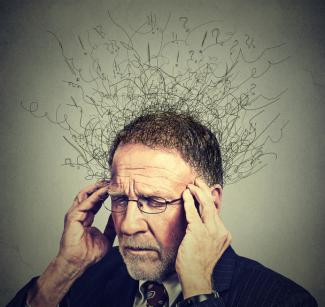
The Positive Side of Emotional Decision Making
Rational investors make better decisions—or so the thinking goes. However, new studies show that rational thought and emotions are both necessary to cut through the details, focus on what’s important, and get on with the decision that needs to be made.
The science of economics has long been based on the assumption that people act rationally when making financial decisions. Money and math require cognitive thinking, so it’s presumed that rational thinking is what people use when deciding whether to buy or sell, borrow or lend, or choose the right account for their savings. If emotions do enter into the picture, economists argue, they should be minimized in an effort to restore rational thought to financial decision making. Under orthodox or Keynesian economics, emotions disturb rationality.
Even behavioral finance pioneers Amos Tversky and Daniel Kahneman focused on how people think when making financial decisions. Their seminal 1979 paper “Prospect Theory: An Analysis of Decision Under Risk” revealed that people don’t always make rational choices when evaluating potential gains and losses. But these errors in judgment were considered cognitive biases related to how people frame an outcome or transaction in their minds, not the influence of emotion.
Although Tversky and Kahneman came from the field of psychology (Kahneman claims to have never taken an economics course), they essentially ignored the role of emotions and interpreted all deviations from rational thought as faulty thinking. Kahneman won the 2002 Nobel Prize in economics. (Tversky died in 1996.)
More recently, neuroscience has converged with economics and psychology to shed new light on what is going on in people’s brains when they make financial decisions. If financial decision making were purely a cognitive process, all thinking would take place in the prefrontal cortex, and this is the only ar ea that would light up during an MRI scan. But studies have shown that activity also takes place in the amygdale, or brain stem, proving that emotion plays a part in people’s decision making as well.
The latest research supports the idea that emotions and rationality are bound up in some way, but researchers are only just beginning to learn how. Beyond acknowledging that emotions play a role in financial decision making, researchers are stuck. Very few controlled studies have been done to explain how emotions and cognitive thought interact when people make decisions, and some behavioral finance researchers have confessed that they really aren’t sure what an emotion is or how to measure it. The few studies that have tried to measure the effect of emotion on financial decision making have provided conflicting results.
For example, Antonio Damasio, author of Descartes’ Error: Emotion, Reason, and the Human Brain, found that when people couldn’t experience emotion due to brain damage in the area that controls emotions, they made worse financial decisions than control subjects who had no brain damage did. His conclusion was that emotions are essential for rational thought.
But a more recent study (“Lessons From the Brain-Damaged Investor”) found different results. In this study, subjects who were unable to experience emotion due to lesions in the brain did better on a simple investment game compared with normal players. Because the emotionally impaired players lacked fear, they were more willing to take gambles that had high payoffs. In the end, they wound up with more money than the undamaged players, who were more cautious and reactive during the game.
However—and this is important—it was noted that the brain-damaged players did not do very well in the real world. Their inability to experience fear led to risk-seeking behavior, and their lack of emotional judgment sometimes led them to get tangled up with people who took advantage of them. Three of the four of them had declared personal bankruptcy.
The upside of emotion
Emotion—when it is acknowledged at all in the domain of financial decision making—is normally considered a negative influence. It is widely assumed that fear and greed lead to bad investment decisions, that grief following the death of a loved one causes cloudy thinking, and that euphoria following a lottery win or other windfall makes people do stupid things with their money. But some researchers have proposed that emotions, which protect us under threatening circumstances (think fight or flight), may also have a positive influence when we are engaging in higher-level thought.
For one, emotions might push a person to make some decision—any decision—when making a decision is paramount. Depending on the situation, there could be so many options that a person could spend an excessive amount of time sifting through the data, weighing all the choices, and becoming bogged down in an attempt to be wholly rational. Shifting one’s attention to the expected emotion, or how one might feel when anticipating an outcome, might allow the person to cut through the details, focus on what is important, and get on with the decision.
Second, emotion may be necessary for the development of intuition in situations where quick decisions must be made using information that has been synthesized on a subconscious level. A study of professional securities traders hooked up to an EKG and skin conductance devices during the trading session found that, far from being completely rational in their thought processes, the most successful traders were having emotional experiences as well.
The researchers concluded that emotion enables traders to form intuitive trading “rules” that give them an edge in the markets and in fact leads to a kind of “survival of the fittest” in the trading environment. By this interpretation, emotion is not something to be minimized or ignored but rather embraced and understood, almost as an evolutionary mandate.
Other findings on emotion and risk
Here are some other interesting tidbits from the research on emotions and risk:
Emotional intensity seems to influence risk perception and risk taking. Some studies have found that people overwhelmed by their emotions cannot act rationally even if they want to. When an outcome is seen as too horrible or catastrophic, people tend to avoid risk calculation as a whole no matter how small the probability of possible negative side effects may be.
Anticipation of gain promotes risk taking, while anticipation of loss promotes risk aversion. Stockbrokers and life insurance agents have known this for years—focusing on potential gains encourages people to take risks, while focusing on potential losses encourages people to avoid risk (and buy insurance). Now neuroscience has confirmed that different areas of the brain are engaged when a person anticipates gains versus losses.
More cognitive thought is required to evaluate risk when outcomes are framed as gains rather than losses. In experiments where risky choices were framed as either gains (200 out of 600 people will be saved) or losses (400 people will die), MRIs showed that people spent more time making up their minds when the choice was framed as a gain.
Most behaviors are driven by the moment. “We can talk abstractions of risk and return, but when the person is physically checking off the box on that investment form, all the things going on at that moment will disproportionately influence the decision they make,” says Harvard economics professor Sendhil Mullainathan in “The Marketplace of Perceptions.” Communication is central, he says.
What matters at least as much as the way products and policies are designed is the way they are communicated to people so they can make purposeful, thought-out choices.
For customized help, visit a financial advisor who has the calculation tools necessary to analyze Social Security claiming strategies that consider your individual situation.

